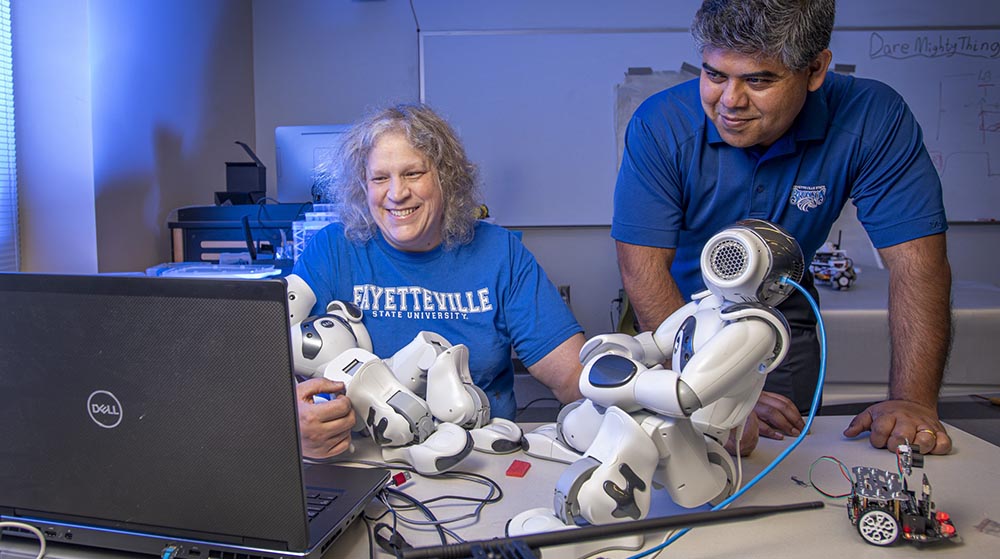FSU is One of Seven Esteemed Universities Selected for Grant-Supported Research to Advance NASA’s Artemis Mission

Fayetteville State University (FSU) is embarking on an exciting journey that is in alignment with innovation, while breathing new life into university culture. FSU is one of just seven esteemed universities selected for grant-supported research to advance NASA’s Artemis mission to establish a sustainable presence on the Moon. The funding has been awarded through NASA’s Minority University Research and Education Project (MUREP) Space Technology Artemis Research, or M-STAR initiative. The M-STAR initiative has awarded cooperative agreements to minority service institutions (MSIs) for projects that will support the agency’s Space Technology Mission Directorate (STMD) to pioneer new lunar technologies. Nearly $3.5 million will be distributed to the selected universities over two-years with nearly $0.5 million received by FSU.
NASA’s Artemis mission will send the first woman and first person of color to the Moon and will create robust human and robotic presence there. NASA will apply what it learns on and around the moon to prepare the way for human missions to Mars. NASA is working with diverse partners in industry and academia to develop the innovative technologies needed to explore more of the Moon than ever before, and M-STAR is part of this cutting-edge scientific and technological effort. FSU’s research project titled Active and On-demand Multi Robot Perception (AOMRP) aims to develop multi-robot perception, a technology that utilizes highly specialized image sensors, to support NASA’s use of autonomous multi-robot systems performing scouting missions on the surface of the Moon or other planets. This project will be led by Dr. Sambit Bhattacharya, Professor of Computer Science at FSU and Director of the Intelligent Systems Lab (ISL), as Principal Investigator of AOMRP.
Dr. Bhattacharya, stated, “This project builds upon previous work in robotics and Artificial Intelligence at the ISL. This award will increase the capacity of FSU to participate in research of interest to NASA by enhancing lab facilities, increasing faculty research, and by preparing students through a combination of innovative strategies that consist of exposure to robotics and Artificial Intelligence, process-oriented guided inquiry learning to support students in constructing advanced knowledge through teamwork, and participation in entrepreneurship activities to increase their critical thinking abilities and confidence.”
Students will be immersed in research tasks in collaboration with NASA/Jet Propulsion Lab (JPL) researchers and engineers from Geisel Software, a custom software development company. Geisel Software has technical expertise in ground-based robotics, swarming robotics, mobility and sensors as well as experience building custom solutions for government organizations.
About NASA
The National Aeronautics and Space Administration is America’s civil space program and the global leader in space exploration. The agency has a diverse workforce of just under 18,000 civil servants, and works with many more U.S. contractors, academia, and international and commercial partners to explore, discover, and expand knowledge for the benefit of humanity. With an annual budget of $23.2 billion in Fiscal Year 2021, which is less than 0.5% of the overall U.S. federal budget, NASA supports more than 312,000 jobs across the United States, generating more than $64.3 billion in total economic output (Fiscal Year 2019). Learn more
